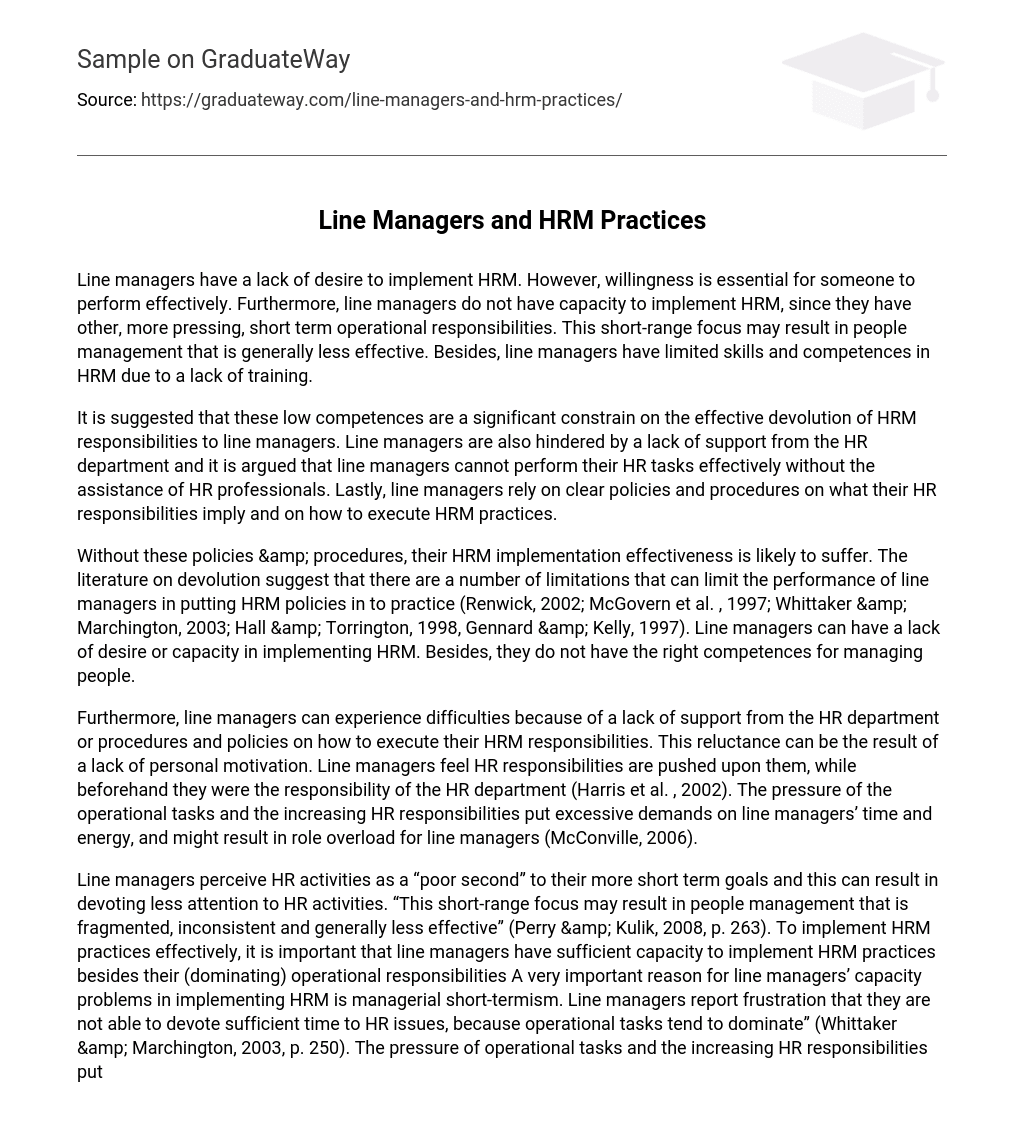Line managers lack the desire and willingness to implement HRM, which is essential for effective performance. Moreover, their capacity to implement HRM is limited due to their other pressing short-term operational responsibilities. This narrow focus may lead to generally less effective people management. Additionally, line managers have limited HRM skills and competences due to inadequate training.
The lack of competency in line managers is seen as a major obstacle to effectively delegating HRM responsibilities to them. Additionally, line managers face difficulties due to inadequate support from the HR department, leading to their inability to carry out HR tasks effectively without assistance from HR professionals. Moreover, line managers depend on explicit policies and procedures that outline their HR responsibilities and guide them in implementing HRM practices.
If these policies and procedures are not in place, the effectiveness of their HRM implementation is likely to be negatively affected. The literature on devolution suggests that there are various limitations that can impede line managers’ performance in implementing HRM policies (Renwick, 2002; McGovern et al., 1997; Whittaker & Marchington, 2003; Hall & Torrington, 1998; Gennard & Kelly, 1997). Line managers may lack the desire or capability to implement HRM effectively and may not possess the necessary skills for managing people.
In addition, line managers may face challenges due to a lack of support and clear guidelines from the HR department regarding their HRM responsibilities. This lack of motivation to take on HR responsibilities could be attributed to the fact that HR duties were previously handled by the HR department. The combination of operational tasks and additional HR responsibilities places a significant burden on line managers, potentially leading to role overload.
Line managers often prioritize their short-term goals over HR activities, leading to less attention being devoted to HR tasks and potentially causing fragmented and inconsistent people management. This can result in a less effective overall HR strategy (Perry & Kulik, 2008, p. 263). To successfully implement HRM practices, it is crucial for line managers to have the capacity to handle these responsibilities alongside their operational duties, which often dominate their focus. Short-termism among managers is a key reason why line managers struggle with their HRM responsibilities. They express frustration at not being able to devote enough time to HR issues due to the overwhelming presence of operational tasks (Whittaker & Marchington, 2003, p. 250). The pressure of these tasks, coupled with the increasing HR responsibilities, creates excessive demands on line managers’ time and energy and may lead to role overload (McConville, 2006). Role overload for line managers is measured using a scale developed by Reilly (1982) for assessing the role overload of housewives.
Role overload is experienced by housewives when the amount of expected behavior from them surpasses their available time and energy. Nehles (2006) suggests that line managers also encounter a similar type of role overload, but with conflicting demands in operational tasks and HRM responsibilities. The time demands for line managers were derived from the items on the housewife’s scale. An example of an original item is: “I am unable to gather enough energy to fulfill all the expectations placed upon me.”
The quotation “I just can’t find the energy in me to perform all the HR activities expected of me” expresses how line managers feel limited in their ability to implement HRM practices. These limitations include unwillingness to take on HRM responsibilities, a lack of capacity due to operational responsibilities, incompetence in implementing HRM practices, insufficient support from the HRM department, and a lack of policies and procedures for executing their HR role (Renwick, 2002; McGovern et al., 1997; Whittaker & Marchington, 2003; Hall & Torrington, 1998).





